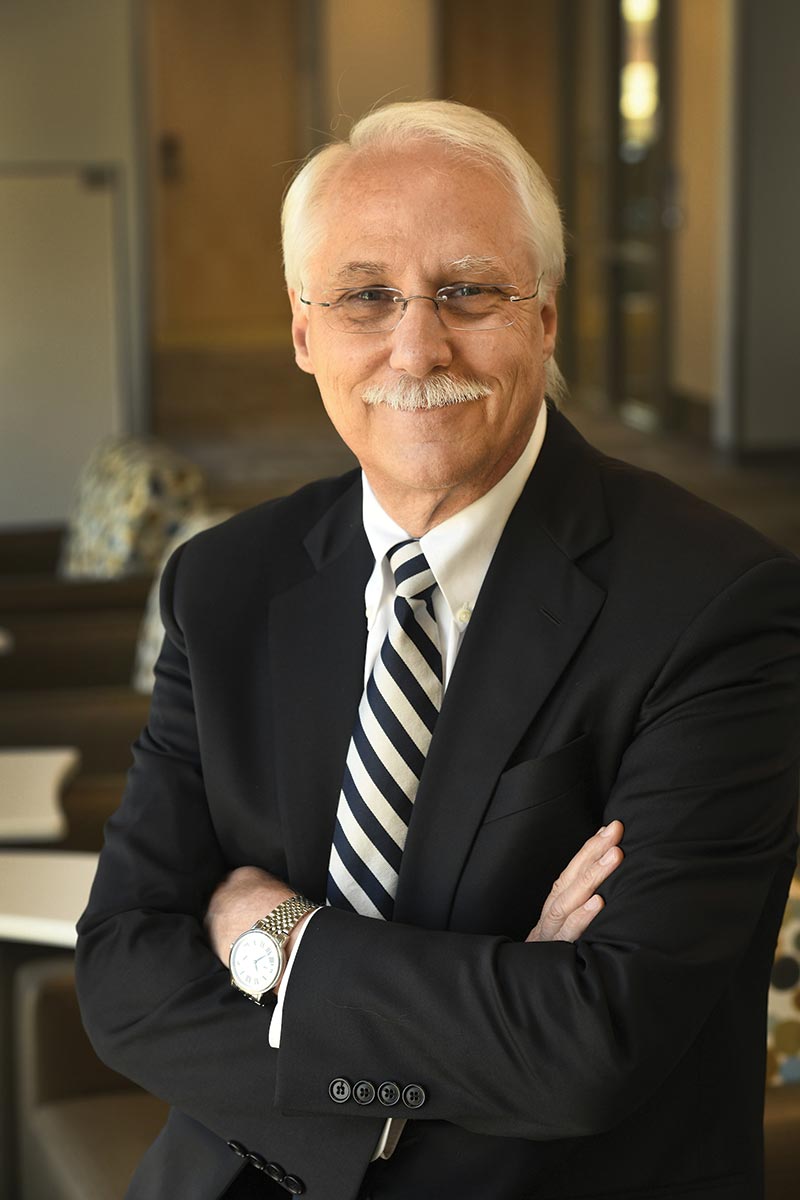Research Magazine


Dr. James Weyhenmeyer serves as Auburn University’s vice president for research and economic development and president of the Auburn Research and Technology Foundation. He provides leadership to various research and economic development units, including sponsored programs, proposal services and faculty support, research compliance, the university veterinarian, electronic research administration, innovation advancement and commercialization, external engagement and support, and university-based start-ups. Dr. Weyhenmeyer has published widely in the areas of cardiovascular disease and stroke. He has been funded by the National Institutes of Health, the National Science Foundation, the American Heart Association, the PHARMA Foundation and private industry.
How did you become interested in neuroscience and cardiovascular health research?
Actually, I was in graduate and post-graduate departments that had a substantial neuroscience component and was able to work with mentors who were looking at the brain and its effect on the cardiovascular system. Early in my career, my research focused on the peripheral and central (brain) control of blood pressure. Later in my career, my research lab did a pivot to work almost exclusively on stroke. The opportunity to understand more and more about the cardiovascular system/brain axis provided largely an open frontier, which was and still is an exciting place to be.
What do you see, overall, as the value of research in our world today, and where does Auburn fit into that?
Well, I think research impacts literally every area of human engagement. I think Auburn and other tier 1 universities will continue to be the epicenter of basic discovery, translating those discoveries into technologies and products that have real societal impact. Research universities have a promising future. My hope is that Auburn will always be one of those institutions solving problems by creating solutions.
How has the Auburn research enterprise weathered the COVID-19 pandemic that has created so many setbacks for other universities?
I think we have been very fortunate to have university leaders who embraced a plan to keep Auburn research labs open, providing all of the services and resources necessary to do research. And that was important, because many places decided to shut down all research activities with the rest of the campus, early in the pandemic. When you look at the numbers — everything from proposals being submitted to awards being made to the institution to expenditure activity — every single metric went up during that period of time. We continued to engage in the impactful research that Auburn has always done. Some of that research actually did impact the pandemic, whether it was diagnostics, devices or potential new therapeutics. But beyond that, we still had a lot of work that was going on in many other areas. So, in terms of our level of activity and our body of researchers, I think Auburn remains on a very strong platform.
There have been some exciting success stories coming out of The Park at Auburn lately—everything from XO Armor, which makes customized protective gear for athletes, to the student-led startup SwiftSKU, which is revolutionizing the convenience store industry. What kind of potential do you see at The Park for bringing Auburn innovations to the public?
I think the potential is exceptional. Bill Dean, who came on board in 2020 as The Park's executive director, has already had a tremendous impact. Bill and his team continue to refine the strategic vision for the research park, with an emphasis on moving innovation to market. In the tech transfer and commercialization space, we're beginning to have some excellent traction as it relates to direct licensing. Research coming out of the university is not only being published in top-tier journals, but those discoveries are moving into commercial opportunities. We are doing what I think research-active universities do well, which is looking at how to define, and ultimately solve, those grand challenges, those societal problems that are looking for a solution.
You have laid out a strategic vision for research at Auburn with four focus areas. Can you tell us a little about that and why these areas of research are so important?
Well, I think one of the early discoveries, when I arrived at Auburn in 2019, was that there was a smorgasbord of research activity going on at the university, and that’s typical at a comprehensive research institution. At some point, most R1 research universities that are growing large portfolios and having a substantial impact have identified a short list of areas where they can concentrate, and they find ways to invest in those areas. That may be infrastructure, it may be seed funding, it may be a whole variety of things. Interestingly, when I visited with many departments across the university and had a chance to talk with faculty, it was an opportunity to really see where the potential areas of focus might be. As we began to analyze the data that came in from those visits and to identify common threads, four areas emerged from that analysis: health and wellness, intelligent systems, cyber and homeland security, and resilient communities, environments and infrastructure. The goal has been to have research themes that are broad enough and important enough to have a significant impact. We want to focus on areas where Auburn can be one of a growing number of research universities that are addressing these important societal problems.

